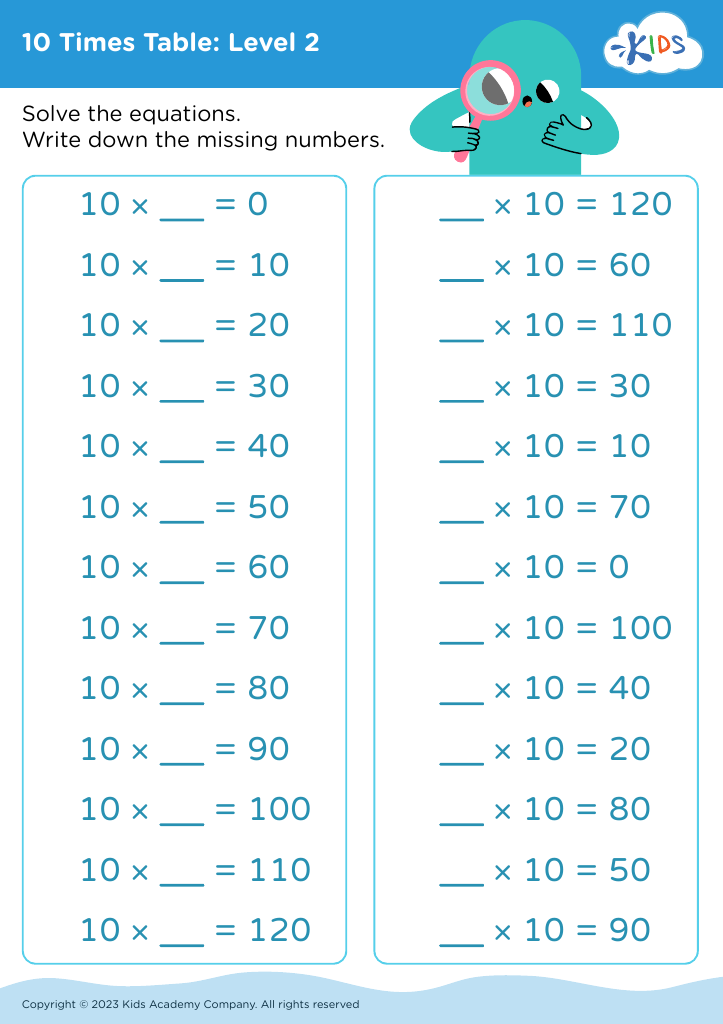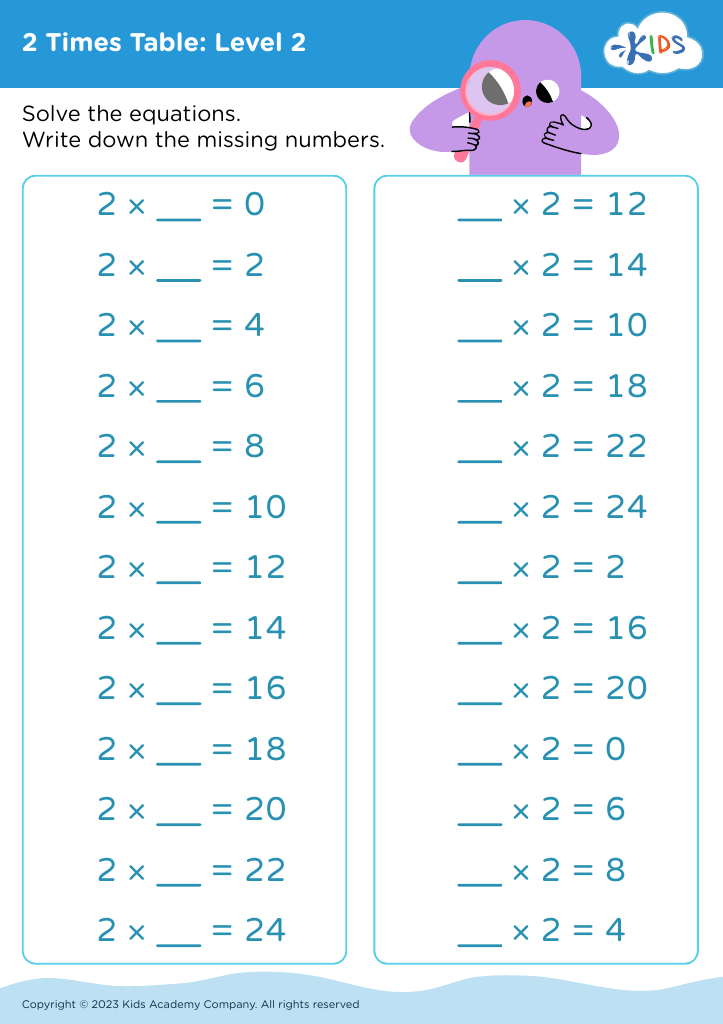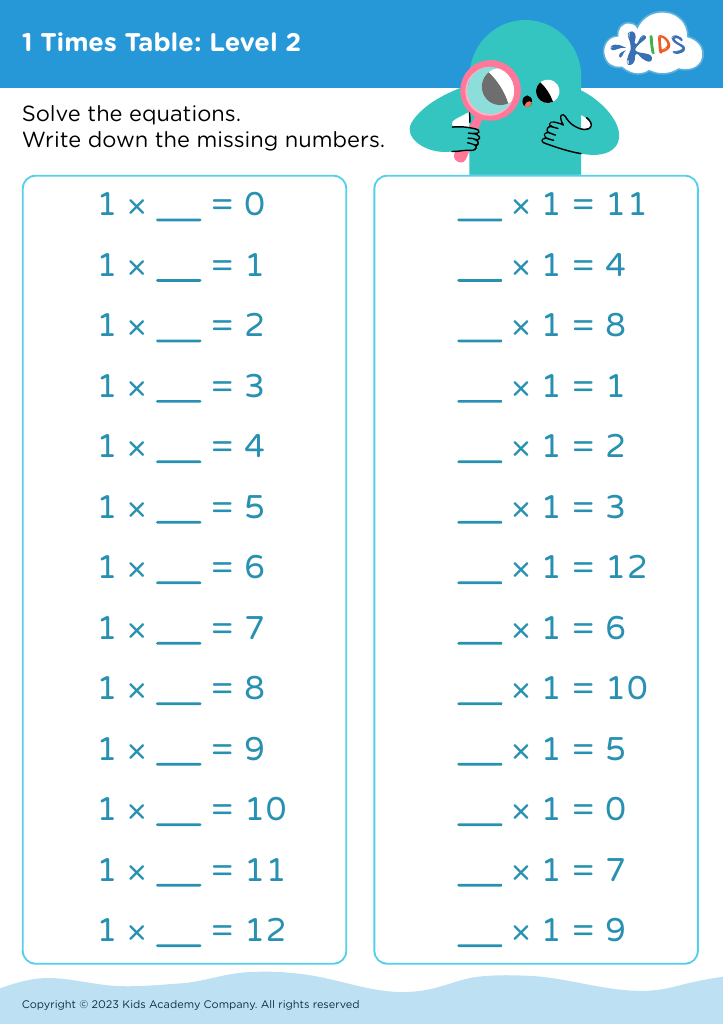Understanding times tables Normal Advanced Times Tables up to 12 Worksheets for Ages 5-8
3 filtered results
-
From - To
Welcome to our "Understanding Times Tables" resource page, designed specifically for children aged 5-8. This collection of advanced times tables worksheets covers multiplication facts up to 12, making learning engaging and effective. Our thoughtfully crafted activities help young learners grasp the fundamental concepts of multiplication through visual aids and interactive exercises. Each worksheet is designed to reinforce not just memorization but also comprehension, ensuring students understand how times tables work in real-world scenarios. Perfect for classroom reinforcement or home practice, these worksheets empower kids to build confidence and fluency in math. Let’s make mastering times tables a fun journey!
Understanding times tables is crucial for children aged 5-8 because it forms the foundation for their future math skills. Mastery of basic multiplication enables children to tackle more complex math concepts like division, fractions, and algebra later in their education. For young learners, grasping times tables up to 12 helps build number fluency, allowing them to compute quickly and accurately, which boosts their confidence in problem-solving.
Additionally, strong multiplication skills are essential for real-world applications, such as budgeting, cooking, and measurement. This makes math relevant and engaging, encouraging a positive attitude towards the subject. Moreover, understanding times tables can enhance cognitive development, as it challenges pupils to think in patterns and develop logical reasoning skills.
Parents and teachers play a vital role in this learning process. They can integrate fun and interactive methods to augment traditional teachings, making learning enjoyable through games and activities. Consistency and practice in mastering times tables can lead to significant academic growth. Therefore, prioritizing this skill not only equips children with essential mathematical tools but also nurtures a lifelong love for learning, setting them up for future educational success.













